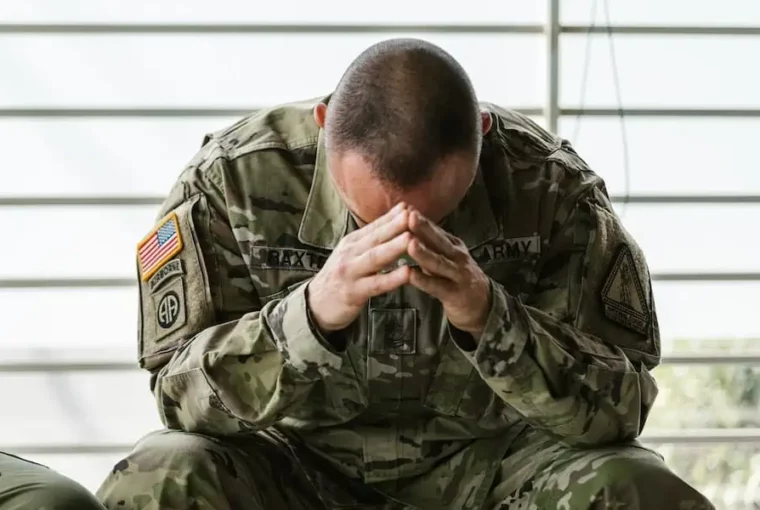Soldiers in the military often face complex challenges and extreme stress, which can lead to addiction problems. For those who have served, trauma from deployment or PTSD can make staying away from dangerous substances incredibly difficult. But there is hope for overcoming addiction – with tools and resources available for support, it’s possible to regain control of your life and a sense of peace without drugs or alcohol.
This article will discuss the unique circumstances before those in the military struggling with addiction, how such difficulties can be addressed, and what type of help is available. Join us as we explore some critical considerations when facing an addiction while deployed on duty or after returning to civilian life.
Understanding Addiction In The Military
The prevalence of addiction in the military has been a growing concern in recent years, as studies suggest that deployments and post-traumatic stress disorder (PTSD) can contribute significantly to the development of substance abuse. Soldiers who have gone through the trauma of combat and deployment often struggle to cope with the physical and emotional stress they have experienced. It can result in their turning to drugs or alcohol as a means of escape, leading to addiction and other problems.
It is crucial, therefore, that we understand the factors that contribute to addiction in the military and devise effective strategies to help those who are affected. Only by doing so can we hope to address this serious issue and ensure that those who have served their country receive the help they need and deserve.
Symptoms Of Addiction
The symptoms of addiction can manifest in various ways, but some common indicators include:
- Increased tolerance for drugs and alcohol
- Withdrawal when not using the substance
- Changes in behavior or mental state while under the influence
- Difficulty managing responsibilities related to work or family life
- Lying or covering up the use of the substance
If you notice any of these signs in your friend or loved one who is a veteran, it may mean they are struggling with addiction. If this is the case, then they must receive help as soon as possible. To treat addiction, choose an accredited rehab facility with a professional team that can provide the best treatment for their needs.
Treating Addiction
Once you have identified the signs of addiction, seeking appropriate treatment is essential. Various treatments are available for those in military service who are suffering from addiction. Depending on the individual’s needs, these can include therapy, counseling, and medication.
Therapy can be an incredibly effective method for dealing with addiction in the military as it allows individuals to address their issues in a safe and supportive environment. It can involve both group sessions and one-on-one counseling sessions that focus on helping them develop coping strategies that will enable them to overcome their dependency.
Medication may also be prescribed if needed, although this should only be done under the guidance of a doctor, as certain drugs may not be suitable for everyone. Additionally, counseling and therapy can help veterans understand their triggers and find ways to manage them more effectively.
Overcoming Challenges
The process of overcoming addiction can be long and complicated, but it is possible with the proper support. It’s important to remember that addiction is an illness, not a moral failing, so it’s essential to have patience and compassion as someone works through recovery. Many potential challenges are associated with overcoming addiction in the military and seeking help for it. These include:
- Accessing medical services while deployed is a common problem, as more medical personnel may need to be available.
- Stigma and shame associated with addiction can make individuals less likely to seek help for their condition.
- The financial burden of treatment and affording addiction treatment can be challenging, especially when a veteran is struggling financially.
- Lack of support from family or friends, addiction can be isolating and difficult to talk about.
It is important to remember that these challenges are all conquerable though they may take some time. If you or someone you know is struggling with addiction in the military, resources such as counseling services, online support groups, and veterans’ programs can help.
Coping Strategies
The primary strategy is to create a supportive environment. It means surrounding oneself with people who can provide emotional and practical support, such as colleagues, friends, family, or professionals. Establishing healthy habits such as eating well and exercising regularly can help the body cope better with stress and reduce cravings.
Setting realistic goals for recovery can help an individual stay focused on their progress, and this can provide motivation when times get tough. Finding enjoyable activities that don’t involve drugs or alcohol will also help distract from cravings, allowing an individual to focus on something more positive.
Finally, it’s important to remember that addiction isn’t something that needs to be faced alone. There are many resources available both within the military and in the broader community which can help. Reaching out for support when needed is vital to overcoming addiction.
Support Networks
One of the most important resources available to individuals battling addiction is social support networks. These networks can provide much-needed emotional, psychological, and practical support during this challenging period in someone’s life. They can help create a safe environment where individuals are comfortable talking about their feelings and experiences. It can benefit veterans struggling with addiction, who may have difficulties opening up about their issues due to stigma or shame.
Having a solid network of supportive family, friends, colleagues, and professionals is essential for overcoming addiction in the military as it provides guidance and comfort throughout the process. Additionally, having people who understand the lifestyle of being in the military can be beneficial as they will know how to better accommodate the issues associated with serving in the armed forces.




